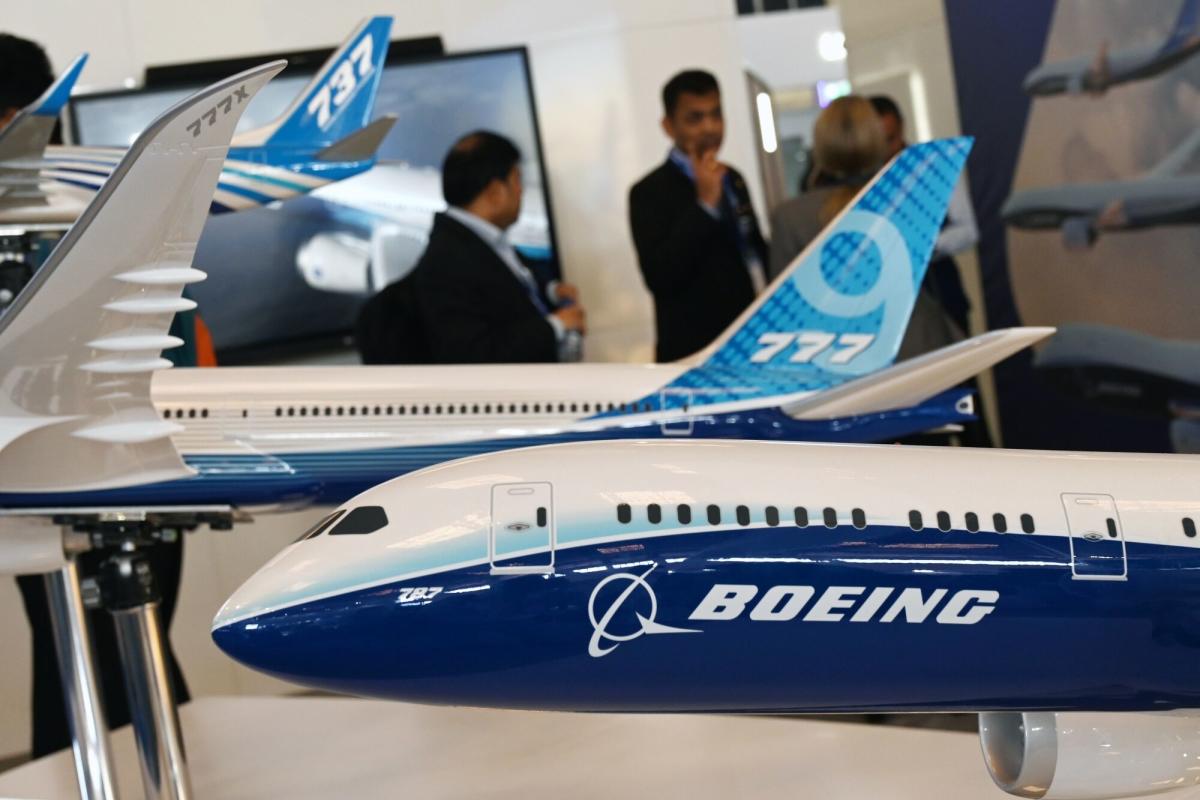Bussiness
Boeing Shares Decline After CFO Walks Back 2024 Cash-Flow Target

(Bloomberg) — Boeing Co. scrapped a plan to generate cash again this year and said it will suffer another significant outflow in the current quarter as the embattled planemaker fights on multiple fronts to get production back in order and ramp up deliveries.
Most Read from Bloomberg
The cash burn in the second quarter will be similar or even worse than in the first three months of the year, when Boeing ran through almost $4 billion, Chief Financial Officer Brian West said at a Wolfe Research conference on Thursday. The full year will now be “a use versus generation of cash flow,” he said.
While West cautioned just a few weeks ago that Boeing would experience a “messy” second quarter with a sizable cash outflow, the latest predictions paint a gloomier picture of the manufacturer’s recovery prospects. The company’s woes have been compounded by China’s request for additional certification on some aircraft parts. That, in turn, has halted deliveries to one of the world’s most important aviation markets, leading to a worsening financial profile.
Boeing fell as much as 6.7% in US trading, the biggest intraday drop in almost four months. The US planemaker is in the midst of a deep crisis following a near-catastrophe in January on 737 Max 9 plane during flight. The planemaker has come under fire from regulators, lawmakers and airlines as the incident brought to light quality and safety lapses at its factories, and triggered the exit of its chairman, chief executive officer and its head of its commercial unit.
West said in April that the company would generate free cash flow “in the low single-digit billions,” for the full year as it ramps up deliveries again. He had also predicted that the second-quarter cash burn would “improve sequentially.”
Because China’s Civil Aviation Administration of China sought additional documents related to certification of batteries in cockpit voice recorders, the company has not been able to hand over aircraft to the country, West said. Deliveries in the period will be close to the numbers achieved in the first three months, he said.
China Setback
The CAAC move is a setback for Boeing, which had only just resumed deliveries of new aircraft to China after a five-year hiatus. Resuming deliveries of the 737 Max to China is vital for generating cash as well as whittling down its stockpile of already built aircraft lingering from a global grounding nearly five years ago and the Covid-19 pandemic that followed.
“Our operational and financial performance is going to get better, and it’s going to accelerate as we go through the third and fourth quarter, and that will be the benefit of all the work we’re doing right now,” West said. “I understand everyone would wish it would go faster, but it’s a long cycle business, and we have to be disciplined.”
The company still expects to win certification for its 777X widebody model in 2025, West said. Some customers have been concerned that that model — already five years late — may be further delayed as Boeing grapples with its many problems. The company is also experiencing part supply issues on its 787 model, including with heat exchangers and seats, though the problems won’t hurt the overall delivery schedule of the widebody model, West said.
West said he’s still optimistic that Boeing can “get something done” with Spirit AeroSystems Holdings Inc. in the second quarter to reintegrate its most important supplier. While “nothing is off the table” in terms of financing the deal, the company is keen to retain its investment-grade credit rating, he said.
Cash Burn
Boeing’s cash burn in the first quarter prompted Moody’s Ratings to cut the company’s credit grade to the edge of junk. The planemaker subsequently raised $10 billion from a bond sale.
The company is scheduled to deliver a 90-day plan to address shortcomings in its manufacturing processes and its safety culture on May 30, according to the Federal Aviation Administration. The plan will lay out steps the company intends to take to fix quality control issues at its factories after a door plug blew off a nearly-new 737 Max in January.
West said the 90-day plan is “not a finish line,” and that Boeing looks forward to continued engagement with the aviation regulator.
“We view this as a longterm investment that’s good for the company, good for our customers, good for the industry,” West of the road ahead.
–With assistance from Allyson Versprille.
(Updates with additional comments from CFO)
Most Read from Bloomberg Businessweek
©2024 Bloomberg L.P.







:max_bytes(150000):strip_icc()/roundup-writereditor-loved-deals-tout-f5de51f85de145b2b1eb99cdb7b6cb84.jpg)


